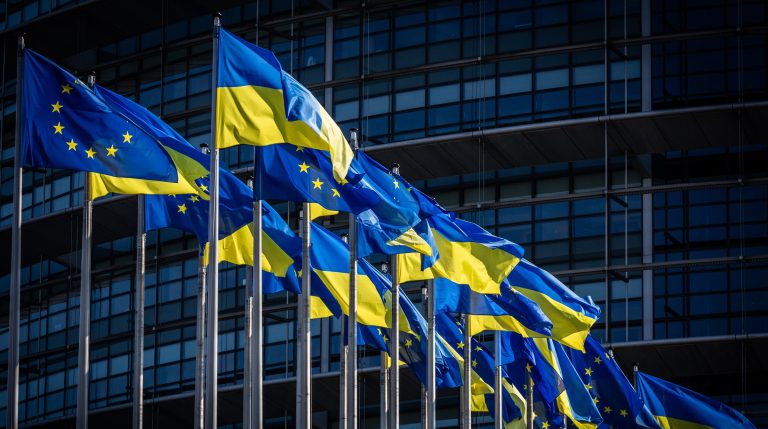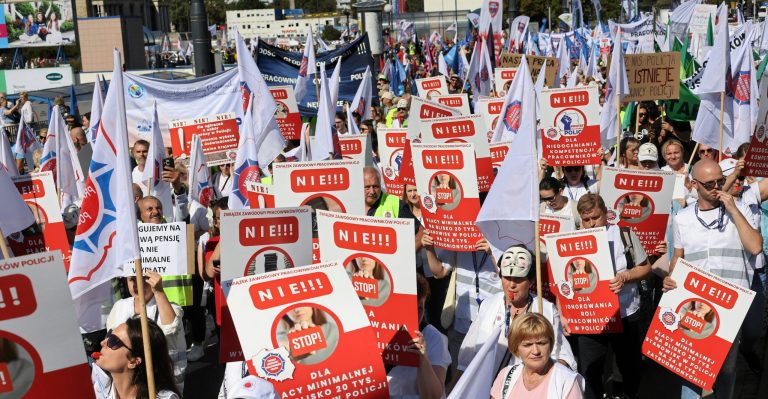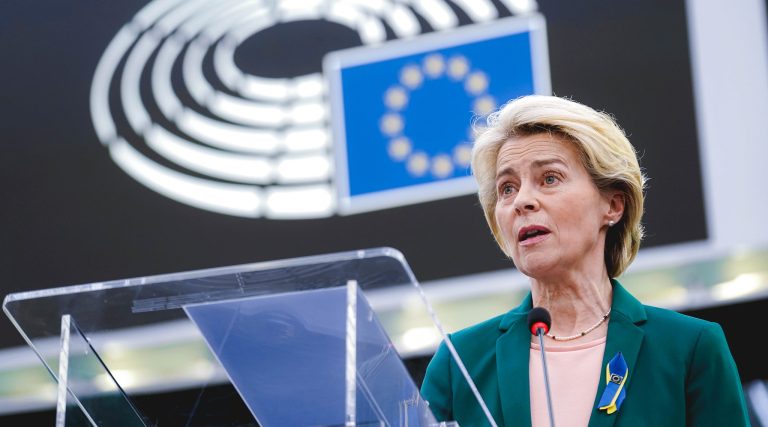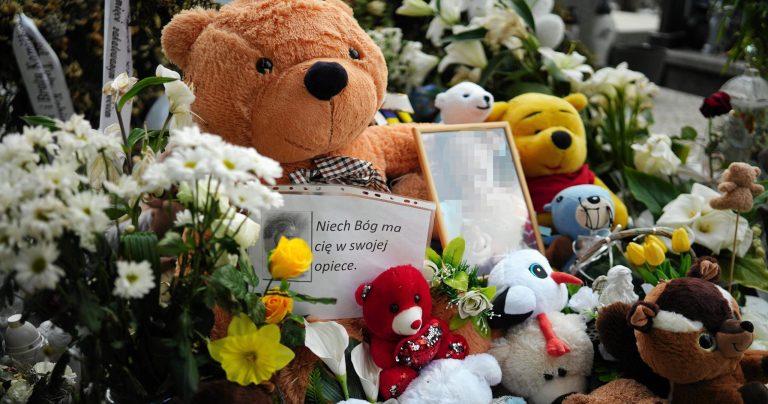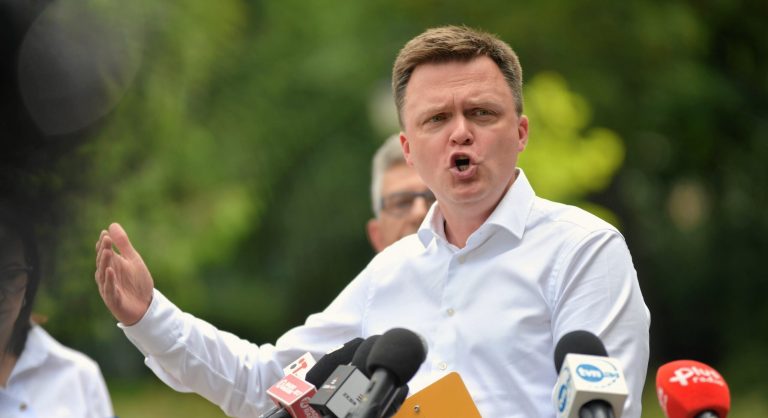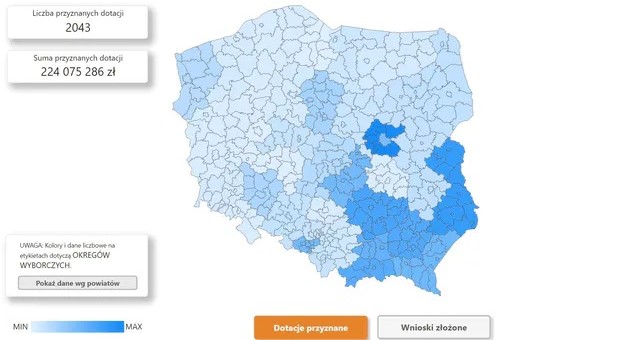New Polish government calls on Germany to “think creatively” about WWII compensation
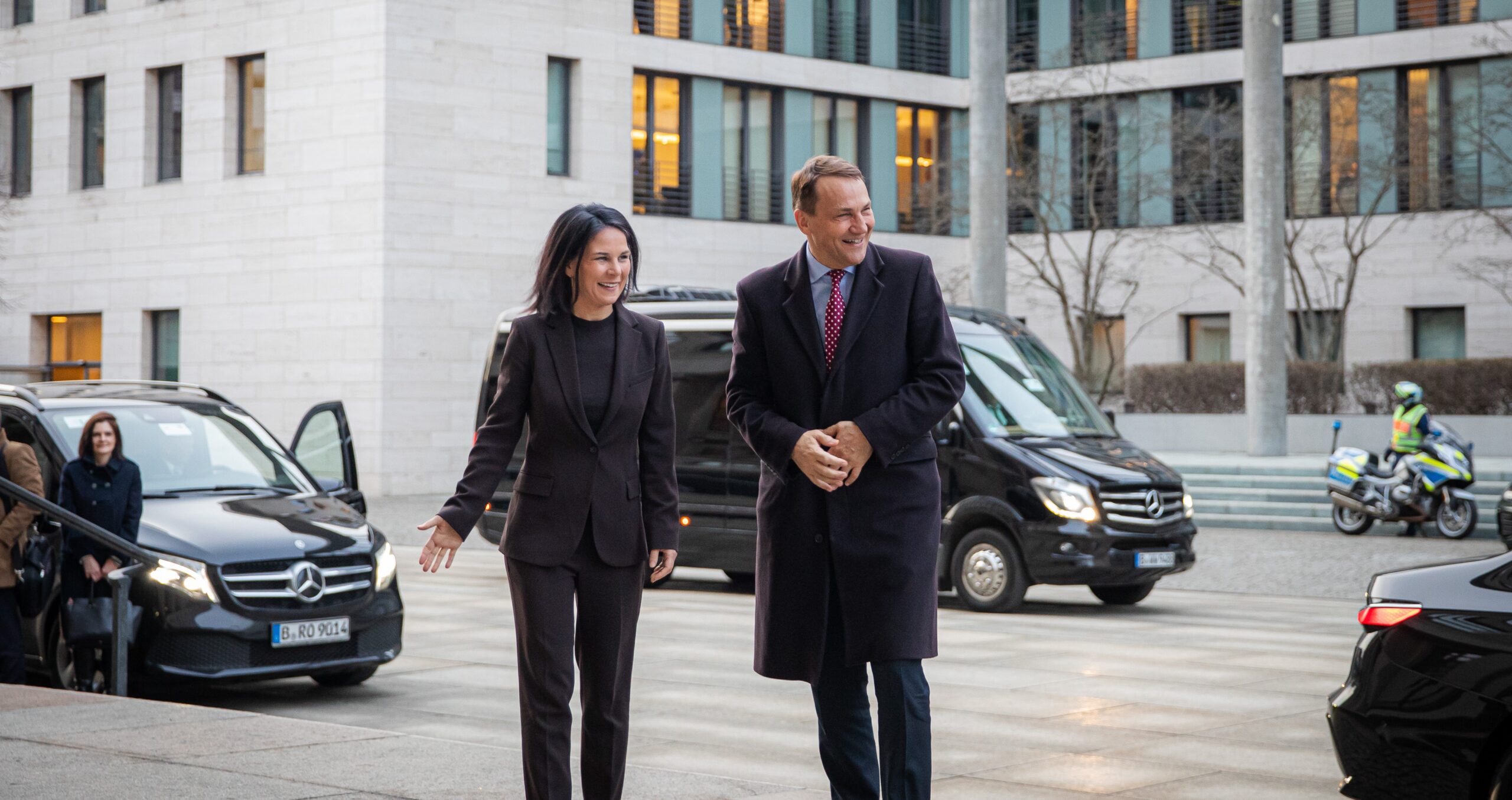
During a visit to Berlin, Poland’s new foreign minister, Radosław Sikorski, has called on Germany to “think creatively” about “compensation” for the losses caused to Poland during World War Two.
Sikorski however, avoided using the word “reparations”, which became a contentious issue under the former Law and Justice (PiS) government. He also pledged to “end the cold war” PiS had waged against the EU and Germany.
„Będę prosił panią minister, aby rząd niemiecki w kreatywny sposób pomyślał o tym, jak znaleźć formę rekompensaty strat wojennych, czy zadośćuczynienia” – powiedział we wtorek w Berlinie szef polskiej dyplomacji Radosław Sikorski. „Bezpieczeństwo Polski i państw bałtyckich jest… pic.twitter.com/paaty9r9Zu
— Fakty RMF FM (@RMF24pl) January 30, 2024
“We are thinking about the future, although we know that historical issues will continue to play an important role in our relations with Germany for a long time to come,” said Sikorski, speaking alongside his German counterpart Annalena Baerbock.
In 2022, the PiS government launched a claim for up to $1.3 trillion in war reparations that it said Germany still owes Poland. Berlin, however, insists that the issue was settled legally long ago and no further compensation is owed.
Yesterday, Sikorski said that he would “ask the German government to think creatively about how to find a form of compensation for war losses” and to “express moral responsibility for Poland’s suffering suffered during World War II”.
This “must, of course, also have a financial dimension”, he added, quoted by news website Wirtualna Polska.
Poland is seeking $1.3 trillion in war reparations from Germany, but Berlin says the issue was legally settled long ago.
Legal scholar @MPiatkowski1 examines the arguments of both sides, explains the legal context, and looks at what could come next https://t.co/xsKAY2TukS
— Notes from Poland 🇵🇱 (@notesfrompoland) September 9, 2022
Baerbock herself did not directly address the issue during her press conference with Sikorski. She did, however, note that “good relations today require looking to the past”, reports Deutsche Welle.
The Polish foreign minister noted that the pair would also discuss plans to establish a centre in Berlin to commemorate the victims of Germany’s brutal occupation of Poland during World War Two.
However, Sikorski also stressed that, under the new government that took office last month, Poland would move away from the “confrontational rhetoric” seen under PiS and move towards a “normalisation of relations” with Berlin.
Germany has outlined plans for a new centre in Berlin commemorating the victims of German atrocities in Poland during WWII.
„We Germans, and that includes me, still have a lot to learn,” says Claudia Roth, the federal commissioner for culture and media https://t.co/HeuP4zGozV
— Notes from Poland 🇵🇱 (@notesfrompoland) August 30, 2023
During its eight years in power, PiS regularly employed anti-German rhetoric, accusing Berlin of working to undermine Polish sovereignty and accusing the then-opposition, which is in now in power, of wanting to make Poland an “appendage of Germany”.
“Germany is Poland’s ally,” said Sikorski yesterday, quoted by broadcaster TVN. “We are ending the cold war with European institutions and with our largest trading partner…[But] this does not mean that we will agree on everything. There are always differences of interest between neighbours.”
Baerbock also emphasised that Berlin is keen to revive relations with Poland. “A strong Europe, the centre of which will move further east in the coming years, needs more than ever a Polish-German friendship and deep trust between Warsaw and Berlin,” she said, quoted by Deutsche Welle.
The EU is preparing a „German plan” that would „annihilate the Polish state”, said Kaczyński as Poland marks Independence Day.
He warned that the incoming opposition government will „strive to implement this plan” and called on Poles to „fight” against it https://t.co/QDbxmiaazJ
— Notes from Poland 🇵🇱 (@notesfrompoland) November 11, 2023
The ministers announced the revival of cooperation within the Weimar Triangle, a platform for political cooperation between France, Germany, and Poland created in 1991. Over the past decade, there have been only two high-level meetings in this format but Baerbock said another would take place “soon” in Paris.
The pair also agreed that support for Ukraine in its defence against Russian aggression “will continue for as long as it is needed” and they addressed the issue of funding for the study of Polish and German as minority languages in their respective countries.
Sikorski outlined the new government’s intention to restore funding for this cut under PiS while Baerbock said that increased funding for the study of Polish “is in the interest” of Germany, taking into account how many Poles live there.
On his first trip abroad as PM, Tusk last week visited Kyiv, where he declared that „nothing is more important than supporting Ukraine” https://t.co/DQmhCyI4Qh
— Notes from Poland 🇵🇱 (@notesfrompoland) January 30, 2024
Notes from Poland is run by a small editorial team and published by an independent, non-profit foundation that is funded through donations from our readers. We cannot do what we do without your support.
Main image credit: Barbara Milkowska / MSZ (under CC BY-NC-ND 3.0 PL)

Alicja Ptak is senior editor at Notes from Poland and a multimedia journalist. She previously worked for Reuters.

